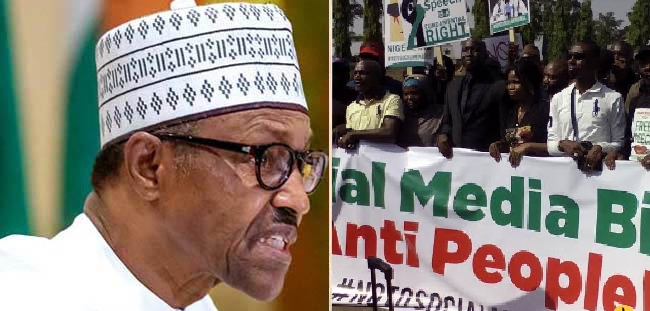
There is no going back on the planned sanitation of the social media, the federal government has maintained, The Nation reports.
The Minister of Information and Culture, Lai Mohammed, said government will not back down on the proposal.
The Minister, who spoke in Abuja during an audience with the online publishers, insisted no amount of criticism will deter the government from going ahead with it.
He stressed that it is the right thing to do as Nigeria was not alone on the measure.
The minister however said government was yet to come out with the modalities for the sanitization, saying it was not going to be a unilateral process.
Besides, he said there are many options open to government in regulating the social media apart from enacting new laws.
According to him: “In recent days, as you must be aware, the campaign has assumed a heightened dimension, especially after we announced, on Oct. 29th 2019, our plan to sanitise the social media.
“Let me say, straight on, that the intense debate – and the debate
has indeed been intense – that has been generated by our announcement, is a welcome development. This is because the announcement has pushed the issue of the social media to the front burner. We can only benefit from such debate.
“We have been monitoring the debate. Some analysts and commentators have supported our plan while others have opposed it.
“An interesting part of the debate has been that even those who oppose the regulation have acknowledged the dangers inherent in the irresponsible use of the social media, especially by anarchists and non-patriots.
“We thank everyone who has spoken out, and we hope the debate will continue.”
The minister also allayed fears of muzzling the media and stifling free speech.
He said: “In the first instance, we have not told anyone how we plan to go about the regulation. This is because this will not be a unilateral process. It will involve all stakeholders coming together to chart the path forward. Let me announce here that we have just kick-started the process.
“We have dispatched letters inviting representatives of the media, civil society, technology and security experts, online publishers, bloggers, relevant agencies of government, etc, for this purpose.
“In the second instance, there are many options open to us in regulating the social media. Apart from enacting new laws, we can also leverage on technology, working with the big techies like Facebook, Twitter, Whatsapp, Instagram to check the spread of fake news and hate speech.
“It is therefore premature for anyone to say ‘Oh, there are enough laws already to deal with social media deviants’. In essence, the committee we plan to set up will determine the best option for us to use.
“Again, the fear of stifling free speech or muzzling the media is
totally unfounded. We have no such plan. As we speak, people are on the social media criticising the Administration.
“We have no problem with that because it is part of democracy. People are using the traditional media to criticise the Administration.
“Why not? This is a democracy and there should be plurality of opinions. But our concern has to do with the abuse of the social media by those who are bent on spreading fake news and hate speech, and the dangers inherent in that for our national peace and unity. We have no hidden agenda.
“As I have said many times, no responsible government will sit by and allow fake news and hate speech to dominate its media space because of the capacity of this menace to exploit our national fault lines to set us against each other and trigger a national conflagration.
“Finally, and for the avoidance of doubt, while we welcome a robust debate on this issue, the criticisms in certain quarters will not stop us from going ahead with our efforts to sanitize the social media space.
“It is the right thing to do in the circumstances. And we are not alone in doing this. Countries around the world are as concerned
as we are, and they are doing something about the social media.
“The list is long: Germany, UK, Singapore, China, South Korea, Uganda, Tanzania, Kenya, Zambia, etc.”
